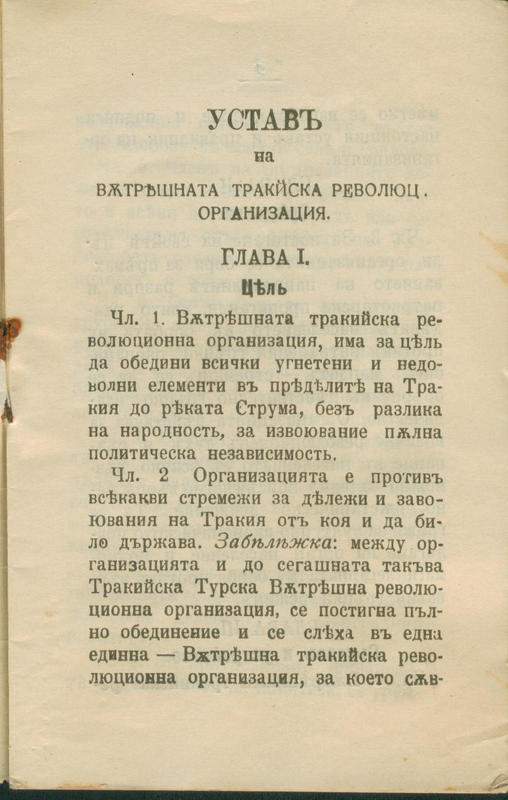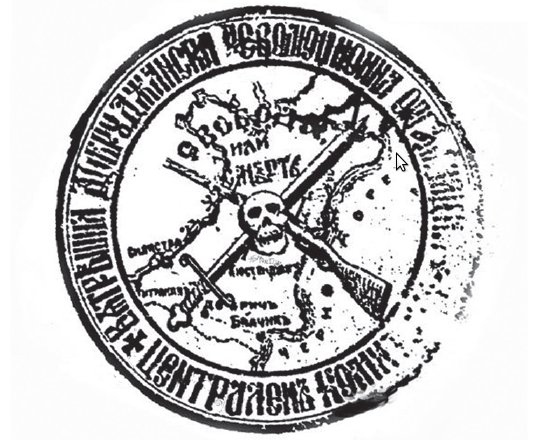|
Internal Thracian Revolutionary Organisation
The Internal Thracian Revolutionary Organisation ( Bulgarian: Вътрешна тракийска революционна организация, ''Vatreshna trakiyska revolutsionna organizatsiya'', ITRO) was a Bulgarian revolutionary organisation active in Western Thrace and southern Bulgaria between 1920 and 1934. Dimitar Bechev, Scarecrow Press, 2009, , p. 100.  The reason for the establishment of ITRO was the deplorable situation of the
The reason for the establishment of ITRO was the deplorable situation of the [...More Info...] [...Related Items...] OR: [Wikipedia] [Google] [Baidu] |
Bulgarian Language
Bulgarian (, ; bg, label=none, български, bălgarski, ) is an Eastern South Slavic language spoken in Southeastern Europe, primarily in Bulgaria. It is the language of the Bulgarians. Along with the closely related Macedonian language (collectively forming the East South Slavic languages), it is a member of the Balkan sprachbund and South Slavic dialect continuum of the Indo-European language family. The two languages have several characteristics that set them apart from all other Slavic languages, including the elimination of case declension, the development of a suffixed definite article, and the lack of a verb infinitive. They retain and have further developed the Proto-Slavic verb system (albeit analytically). One such major development is the innovation of evidential verb forms to encode for the source of information: witnessed, inferred, or reported. It is the official language of Bulgaria, and since 2007 has been among the official languages of ... [...More Info...] [...Related Items...] OR: [Wikipedia] [Google] [Baidu] |
Thracians
The Thracians (; grc, Θρᾷκες ''Thrāikes''; la, Thraci) were an Indo-European speaking people who inhabited large parts of Eastern and Southeastern Europe in ancient history.. "The Thracians were an Indo-European people who occupied the area between northern Greece, southern Russia, and north-western Turkey. They shared the same language and culture... There may have been as many as a million Thracians, diveded among up to 40 tribes." Thracians resided mainly in the Balkans (mostly modern day Bulgaria, Turkey and Greece) but were also located in Anatolia (Asia Minor) and other locations in Eastern Europe. The exact origin of Thracians is unknown, but it is believed that proto-Thracians descended from a purported mixture of Proto-Indo-Europeans and Early European Farmers, arriving from the rest of Asia and Africa through the Asia Minor (Anatolia). The proto-Thracian culture developed into the Dacian, Getae, and several other smaller Thracian cultures. Thracian c ... [...More Info...] [...Related Items...] OR: [Wikipedia] [Google] [Baidu] |
1920s In Greece
Nineteen or 19 may refer to: * 19 (number), the natural number following 18 and preceding 20 * one of the years 19 BC, AD 19, 1919, 2019 Films * ''19'' (film), a 2001 Japanese film * ''Nineteen'' (film), a 1987 science fiction film Music * 19 (band), a Japanese pop music duo Albums * ''19'' (Adele album), 2008 * ''19'', a 2003 album by Alsou * ''19'', a 2006 album by Evan Yo * ''19'', a 2018 album by MHD * ''19'', one half of the double album '' 63/19'' by Kool A.D. * '' Number Nineteen'', a 1971 album by American jazz pianist Mal Waldron * ''XIX'' (EP), a 2019 EP by 1the9 Songs * "19" (song), a 1985 song by British musician Paul Hardcastle. * "Nineteen", a song by Bad4Good from the 1992 album ''Refugee'' * "Nineteen", a song by Karma to Burn from the 2001 album ''Almost Heathen''. * "Nineteen" (song), a 2007 song by American singer Billy Ray Cyrus. * "Nineteen", a song by Tegan and Sara from the 2007 album '' The Con''. * "XIX" (song), a 2014 song by Slipkn ... [...More Info...] [...Related Items...] OR: [Wikipedia] [Google] [Baidu] |
1920s In Bulgaria
Nineteen or 19 may refer to: * 19 (number), the natural number following 18 and preceding 20 * one of the years 19 BC, AD 19, 1919, 2019 Films * ''19'' (film), a 2001 Japanese film * ''Nineteen'' (film), a 1987 science fiction film Music * 19 (band), a Japanese pop music duo Albums * ''19'' (Adele album), 2008 * ''19'', a 2003 album by Alsou * ''19'', a 2006 album by Evan Yo * ''19'', a 2018 album by MHD * ''19'', one half of the double album '' 63/19'' by Kool A.D. * '' Number Nineteen'', a 1971 album by American jazz pianist Mal Waldron * ''XIX'' (EP), a 2019 EP by 1the9 Songs * "19" (song), a 1985 song by British musician Paul Hardcastle. * "Nineteen", a song by Bad4Good from the 1992 album ''Refugee A refugee, conventionally speaking, is a displaced person who has crossed national borders and who cannot or is unwilling to return home due to well-founded fear of persecution. [...More Info...] [...Related Items...] OR: [Wikipedia] [Google] [Baidu] |
Bulgarian Revolutionary Organisations
Bulgarian may refer to: * Something of, from, or related to the country of Bulgaria * Bulgarians, a South Slavic ethnic group * Bulgarian language, a Slavic language * Bulgarian alphabet * A citizen of Bulgaria, see Demographics of Bulgaria * Bulgarian culture * Bulgarian cuisine, a representative of the cuisine of Southeastern Europe See also * * List of Bulgarians, include * Bulgarian name, names of Bulgarians * Bulgarian umbrella, an umbrella with a hidden pneumatic mechanism * Bulgar (other) * Bulgarian-Serbian War (other) The term Bulgarian-Serbian War or Serbian-Bulgarian War may refer to: * Bulgarian-Serbian War (839-842) * Bulgarian-Serbian War (853) * Bulgarian-Serbian wars (917-924) * Bulgarian-Serbian War (1330) * Bulgarian-Serbian War (1885) * Bulgarian ... {{disambiguation Language and nationality disambiguation pages ... [...More Info...] [...Related Items...] OR: [Wikipedia] [Google] [Baidu] |
Internal Western Outland Revolutionary Organisation
The Western (Bulgarian) Outlands () is a term used by Bulgarians to describe several regions located in southeastern Serbia. The territories in question were ceded by Bulgaria to the Kingdom of the Serbs, Croats and Slovenes in 1920 as a result of the Treaty of Neuilly, following the First World War. According to the Serbian census of 2011, two towns in the Western Outlands, Bosilegrad and Dimitrovgrad, are populated primarily by Bulgarians. Internal Western Outland Revolutionary Organization The Internal Western Outland Revolutionary Organization ( bg, Вътрешна западнопокрайска революционна организация, Vatreshna zapadnopokrayska revolyutsionna organizatsiya), IWORO, was a Bulgarian separatist organization active in the Western Outlands between 1921 and 1941 in the Kingdom of Serbs, Croats and Slovenes (until 1929), and then its successor, the Kingdom of Yugoslavia. The organization was established in 1921 on the basis of sev ... [...More Info...] [...Related Items...] OR: [Wikipedia] [Google] [Baidu] |
Internal Dobrudjan Revolutionary Organisation
The Internal Dobrujan Revolutionary Organisation ( bg, Вътрешна добруджанска революционна организация; ro, Organizația Revoluționară Internă Dobrogeană) or IDRO was a Bulgarian nationalist and revolutionary organisation active in Romanian Dobruja from 1923 to 1940. It was labeled a terrorist organization by the Romanian government, though in Bulgaria it was regarded as a liberation movement. The organisation was founded in 1923 under the leadership of Docho Mihaylov and on the basis of the Great Convention of Dobruja (Велик добруджански събор), a Bulgarian political organisation established in 1919 to fight against Romanian rule in Southern Dobruja. The IDRO detachments fought against the widespread brigandage in the region, as well as the Romanian administration in the region. Like the Internal Macedonian Revolutionary Organisation in Macedonia and the Internal Thracian Revolutionary Organisation in Thrace, ID ... [...More Info...] [...Related Items...] OR: [Wikipedia] [Google] [Baidu] |
Internal Macedonian Revolutionary Organisation
The Internal Macedonian Revolutionary Organization (IMRO; bg, Вътрешна Македонска Революционна Организация (ВМРО), translit=Vatrešna Makedonska Revoljucionna Organizacija (VMRO); mk, Внатрешна Македонска Револуционерна Организација, translit=Vnatrešna Makedonska Revolucionerna Organizacija), was a secret revolutionary society founded in the Ottoman territories in Europe, that operated in the late 19th and early 20th centuries. Founded in 1893 in Salonica, initially, it aimed to gain autonomy for Macedonia and Adrianople regions in the Ottoman Empire, however, later it became an agent serving Bulgarian interests in Balkan politics. IMRO group modeled itself after the Internal Revolutionary Organization of Vasil Levski and accepted its motto "Freedom or Death" (Свобода или смърть). Starting in 1896 it fought the Ottomans using guerrilla tactics, and in this they we ... [...More Info...] [...Related Items...] OR: [Wikipedia] [Google] [Baidu] |
Kimon Georgiev
Kimon Georgiev Stoyanov ( bg, Кимон Георгиев Стоянов; August 11, 1882 – September 28, 1969) was a Bulgarian general who was the Prime Minister of the Kingdom of Bulgaria from 1934 to 1935 and again from 1944 to 1946. Life and career Born in Pazardzhik, Georgiev graduated from the Sofia military academy in 1902. He participated in the Balkan Wars as a company commander and in the First World War as a commander of a battalion. In 1916 he lost an eye due to injuries received in action. He left the army in 1920 with the rank of lieutenant colonel. Georgiev was one of the founders of the Military Union in 1919 and the People's Alliance in 1922. He participated in the organization of the 1923 coup d'état and after that became one of the leaders of the Democratic Alliance. He was the minister for railways, postal service and telegraphs in the first cabinet of Andrey Lyapchev. In the 1930s he became one of the leaders of the right-wing military '' Zveno'' ... [...More Info...] [...Related Items...] OR: [Wikipedia] [Google] [Baidu] |
Kurdzhali
Kardzhali ( bg, Кърджали , ''Kărdžali''; tr, Kırcaali; gr, Κάρτζαλι, ''Kártzali''), sometimes spelt Kardžali or Kurdzhali, is a town in the Eastern Rhodopes in Bulgaria, centre of Kardzhali Municipality and Kardzhali Province. The noted Kardzhali Dam is located nearby. Name Named after the 14th-century Ottoman conqueror Kırca Ali, from the Turkish name Kırca and the Islamic name Ali, derived from an Arabic root which means "high" or "elevated". Geography Kardzhali is located in the low eastern part of Rhodope Mountains, on both banks of the river Arda between the Kardzhali Reservoir to the west and the Studen Kladenets Reservoir to the east. The town is southeast of Sofia. It has a crossroad position from Thrace to the Aegean Sea — part of European transportation route 9, via the Makaza mountain pass. Climate Kardzhali has a hot-summer Mediterranean climate ( Köppen climate classification: Csa), that is bordering closely on a humid su ... [...More Info...] [...Related Items...] OR: [Wikipedia] [Google] [Baidu] |
Haskovo
Haskovo ( bg, Хасково ) is a city in the region of Northern Thrace in southern Bulgaria and the administrative centre of the Haskovo Province, not far from the borders with Greece and Turkey. According to Operative Program Regional Development of Bulgaria, the urban area of Haskovo is the seventh largest in Bulgaria and has a population of 184,731 inhabitants. The number of inhabitants of Town of Haskovo is 67,086 people, according to the 2021 census.https://nsi.bg/bg/content/2975/%D0%BD%D0%B0%D1%81%D0%B5%D0%BB%D0%B5%D0%BD%D0%B8%D0%B5-%D0%BF%D0%BE-%D0%BE%D0%B1%D0%BB%D0%B0%D1%81%D1%82%D0%B8-%D0%BE%D0%B1%D1%89%D0%B8%D0%BD%D0%B8-%D0%BC%D0%B5%D1%81%D1%82%D0%BE%D0%B6%D0%B8%D0%B2%D0%B5%D0%B5%D0%BD%D0%B5-%D0%B8-%D0%BF%D0%BE%D0%BB The first settlement found in Haskovo is from circa 5000 BC. Haskovo celebrated its 1,000th anniversary as a town in 1985. To mark the event, a new clock tower was erected in the centre of the town. Haskovo Cove in Greenwich Island in the South ... [...More Info...] [...Related Items...] OR: [Wikipedia] [Google] [Baidu] |
Dimitar Madzharov
Dimitar ( bg, Димитър; Macedonian: Димитар) is a South Slavic masculine given name. It is widely found in Bulgaria and North Macedonia. Dimitar is derived from Saint Demetrius (280–306), alternate form of Demetrius. Containing the Proto Indo-European language ''mater'' "mother", it is rooted in the Greek goddess Earth mother Demeter. The most common short for Dimitar is Mitko, while people with the name Dimitar are informally called also Mite, Mito, Dimo, Dimi, Dimcho, Dimko, Dimka, Dime. *Dimitar Agura (1849–1911), Bulgarian historian, professor of history at Sofia University and rector of the university *Dimitar Andonovski (born 1985), Ethnic Macedonian singer *Dimitar Avramovski–Pandilov (1899–1963), ethnic Macedonian painter *Dimitar Berbatov (born 1981), Bulgarian footballer *Dimitar Blagoev (1856–1924), Bulgarian political leader, the founder of Bulgarian socialism *Dimitar Bosnov (born 1933), defender for PFC Cherno More Varna from 1955 to 1970 *Dimit ... [...More Info...] [...Related Items...] OR: [Wikipedia] [Google] [Baidu] |




.jpg)